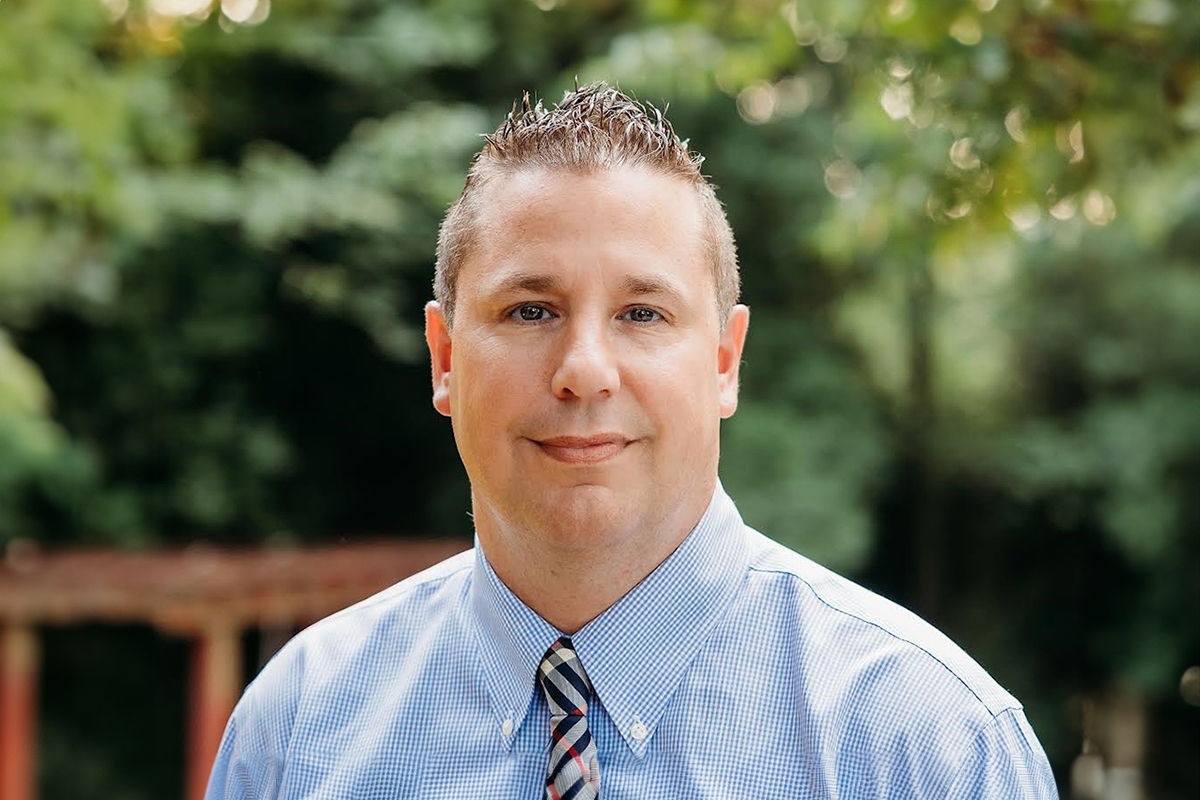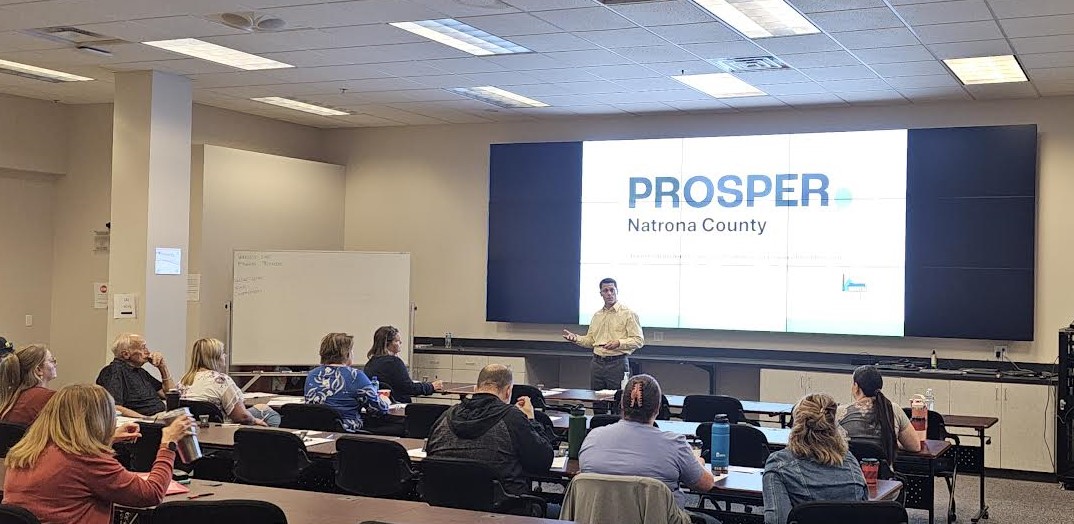Search News Archives
Filter News Articles
Additional Navigation
Doctoral education student promotes conversations about suicide prevention in Wyoming
September 10, 2024 : By Ryan Klinker - Office of Communications & Public Engagement

Incidents of suicide are as pervasive as ever among communities in the United States and around the world, and while September is a reminder as National Suicide Prevention Month, a Liberty University doctoral student is committed to helping those at risk of taking their own lives.
William Miller, who is pursuing his Doctor of Philosophy (Ph.D.) in Education through Liberty University Online Programs, is impacting communities in Wyoming in his leadership role with PROSPER, a suicide prevention organization.
PROSPER, which stands for the Proactive Reduction of Suicide in Populations via Evidence-Based Research, has a mission to reduce suicide risk in communities through strength-based, culturally adaptive education, empowerment, and community engagement.
Miller, of Long Island, N.Y., teamed up with Dr. Kent Corso, an Army veteran who founded PROSPER to combat the high rate of suicide among veterans and active-duty personnel, and Dr. Lesley Manson, a leading expert in mental health integration and community outreach, to win an RFP (request for proposal) issued by Wyoming Governor Mark Gordon’s office for a community-based suicide prevention initiative. Together, they have expanded PROSPER’s mission to reduce suicide risk across Wyoming through evidence-based strategies. Miller now serves as PROSPER’s Director of Curriculum and Design, where he focuses on developing programs that emphasize strength-based, culturally adaptive education, empowerment, and community engagement.
Miller said one of the ways PROSPER addresses the issue of suicide is by equipping people with “little tools” to respond to friends and loved ones who reveal thoughts of ending their life.

“A lot of people are afraid to talk about suicide and avoid having difficult conversations for fear of making the situation worse. In actuality, one of the worst things they can do is not have the conversation at all,” Miller explained. “Avoiding the topic can make someone feel even more isolated, as if they truly are alone and nobody cares. We try to empower people with strategies on what to say if someone does express suicidal thoughts.”
“It’s also important for leaders to know this as well because if you’re the leader, you set the stage, and if you’re willing to talk about your own issues and your own struggles, it makes it more comfortable for everybody to talk about theirs,” he added.
One of the most critical aspects of breaking the stigma surrounding suicide, Miller said, is by talking about it openly and frequently, and that’s what inspires PROSPER’s training sessions and community events. PROSPER offers two types of six-hour trainings: one for mental health professionals that is more clinical-heavy, and one for first responders, faith-based leaders, and educators designed to help prepare them for when someone may approach them in their respective environment with suicidal thoughts. Their community events are typically 90-minute open discussions in which PROSPER facilitates the conversations but steps back to let the attendees lead.
“Suicide is often looked at as a mental health issue that needs to be solved by doctors and clinicians, but on our end, we approach it as a social issue, and like all social issues, the more we talk about them, the more comfortable we become having difficult conversations,” Miller said. “Around 12.3 million people think about suicide every year, yet 48,000 die by it. This means the vast majority of people who think about suicide find the strength to persist. By encouraging open conversations, we can break the stigma surrounding suicide, making it easier for people to seek help without fear or shame.”
Miller has also continued his suicidology research, and with the need to learn how to best organize the tremendous amount of data he has collected and present it to others as well as a desire to infuse his work with his Christian faith, he was led to the curriculum and instruction focus of Liberty’s Ph.D. in Education program.
“I’ve always known that a Ph.D. in curriculum and design was in my future, always with the focus on social emotional learning programs,” he said. “The more that I started to research and work on suicide prevention, the more that my own faith became a real strength, and it’s an underutilized aspect when addressing (suicide). I was looking for a school just like Liberty, one that has a real focus on Christian values and applying the biblical worldview to everything in my studies.”

Miller said his first year of the program has already informed his work and his faith and has further inspired him to apply Christ to the topic of suicide.
“When assignments, conversations, and lectures are all provided to me with that worldview, it’s made me more comfortable,” he said. “It’s this comfort with knowing that it is acceptable to talk about things this way. Now I’m driven by the desire to integrate faith-based principles with the latest suicide prevention research, working closely with school districts to empower them to support their students not just academically but emotionally and spiritually. I truly believe that through the strength of our faith and the dedication of our communities, we can make a profound impact on the lives of those at risk.”
In April, Liberty’s Student Health Center and Wellness Initiatives office hosted an Out of the Darkness Walk to help students and members of the local community discuss, remember, and heal from the effects of suicide. The event raised over $9,000 for the American Foundation for Suicide Prevention.
Liberty students seeking help in a crisis are able to visit the Counseling and Psychological Services office, located in Green Hall (GH 1830) and open from 8 a.m. to 4:30 p.m. Monday through Friday. For emergency assistance after office hours, contact your Resident Director or call the Liberty University Police Department emergency line at (434) 592-3911.
The national Suicide and Crisis Lifeline is 988, available for call or text 24/7.


